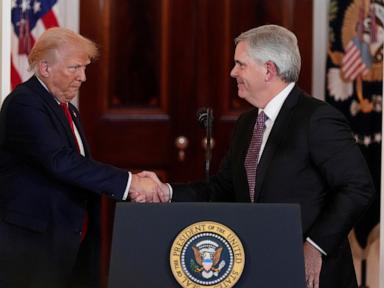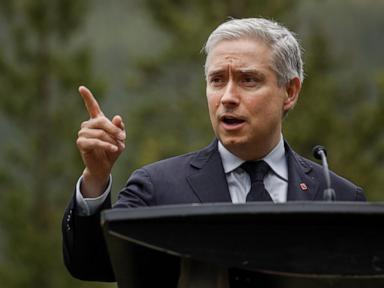Now Reading: Trump drafts America’s business titans to burnish his image at home and abroad
-
01
Trump drafts America’s business titans to burnish his image at home and abroad
Trump drafts America’s business titans to burnish his image at home and abroad

WASHINGTON — Following a recent Middle East tour by President Donald Trump, other notable figures also made their way across the region. Nvidia’s CEO was among those on a private jet that followed Air Force One. Oil executives and bankers also joined in, as American business leaders quickly adjusted their schedules to meet with Trump and support the narrative he was promoting during his foreign trip.
Nowadays, it has become common for America’s corporate leaders to engage with the president, either through accompanying him on trips or visiting the Oval Office. Companies are increasingly investing time and effort to gain favor with the administration in hopes of receiving regulatory relief and tariff exemptions from the transactional president. While these efforts aim to showcase a robust economy amid slowing growth, companies like Apple, Amazon, and Walmart have still faced Trump’s scrutiny, suggesting that their public commitments to create U.S. jobs may serve more to enhance the president’s image than to safeguard their own profitability.
During Trump’s trip, CEOs and executives found themselves unofficially part of the president’s entourage, traveling on private jets across the Gulf to countries like Saudi Arabia, Qatar, and the United Arab Emirates. Many felt compelled to establish close ties with Trump, particularly in light of his tariff decisions.
Business conferences were hastily organized by host countries and the White House to provide a platform for Trump to showcase his negotiation skills during the trip. Corporate leaders signed partnership agreements and highlighted mutual investments, not only for Trump’s benefit but also to network with influential figures in the region. While CEOs may engage with Trump to gain favorable treatment and publicity, it does not always shield them from the president’s unpredictable actions.
In a meeting at the Oval Office, a French executive from LVMH, Bernard Arnault, received praise from Trump for the company’s contributions. Despite facing challenges from tariffs that impact their luxury business, LVMH was commended by Trump for their support to the families of fallen law enforcement officers.
Compared to the Biden administration, business leaders have found themselves maintaining frequent communication with Trump’s team, although this does not guarantee substantial influence over his decisions. Executives have sometimes struggled to identify the best channel to convey their views on tariffs, regulations, and taxes to the president, with Treasury Secretary Scott Bessent often serving as an intermediary. However, even with such connections, companies like Walmart have found themselves at odds with Trump, facing public criticism and tariff threats.
Overall, engaging with Trump has become a strategic necessity for many businesses, with CEOs navigating a delicate balance of showing support to benefit from favorable treatment while also facing the risk of being targeted by the president’s unpredictable actions.



